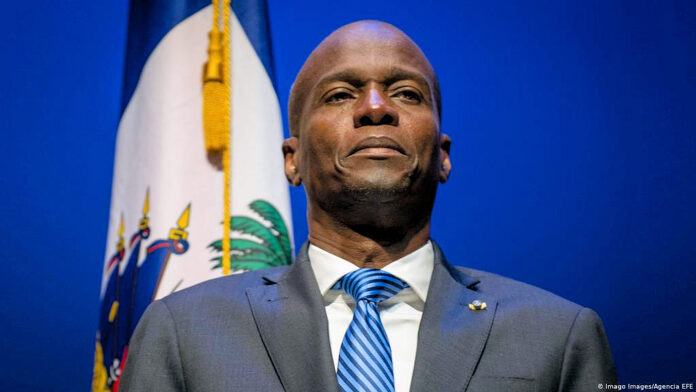
At the end of 2019, a profound revolution appeared to be imminent in Haiti. Months of unrelenting, massive demonstrations demanding President Jovenel Moïse’s removal had brought his regime to its knees.
But three things saved him. During the traditional December slowdown of popular demonstrations, Washington stepped up a diplomatic counter-offensive, which stretched into the start of 2020. Then, more importantly, the Covid-19 pandemic arrived in Haiti in mid-March, chilling mass mobilizations.
Finally, after Parliament expired in January 2020, Jovenel Moïse began one-man-rule, issuing 38 presidential decrees, 44 executive orders, and 110 arrêtes over the past 12 months.
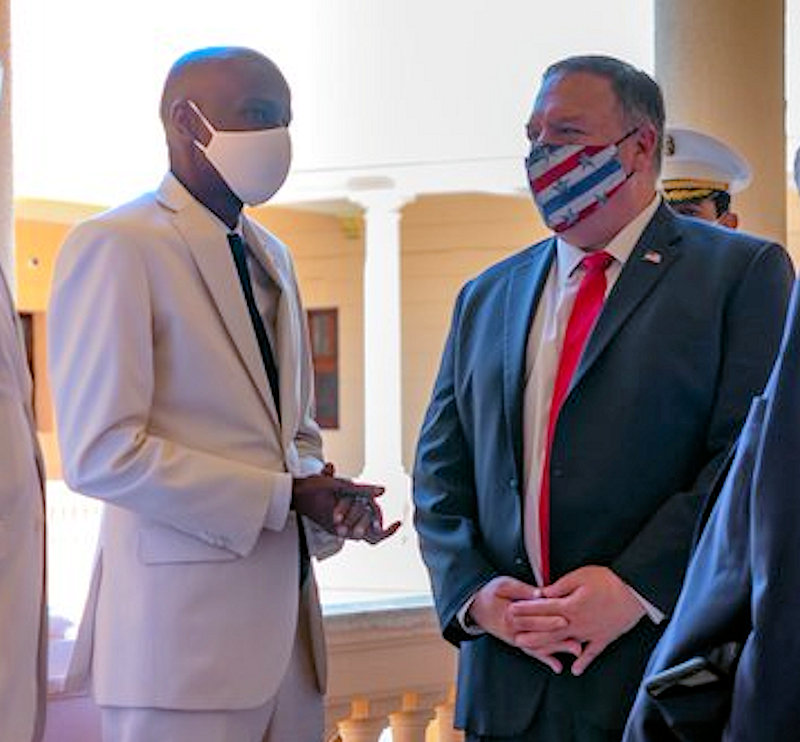
Former senator Samuel Madistin, who now heads a human rights group, told the Miami Herald that Jovenel Moïse’s decree-spree is very similar to that of François “Papa Doc” Duvalier six decades ago.
“The actions being taken by Jovenel are eerily similar to what Duvalier was doing when he took the country along the route of dictatorship,” Madistin said, noting that Papa Doc issued 142 decrees during the six months before becoming “President-for-Life” in 1964. “He modified a bunch of decrees on national life in Haiti, the same way Jovenel is doing… Once you have a president who doesn’t respect the fundamental rights of a citizen, he doesn’t respect the laws of the constitution, he’s nothing other than a dictator. What’s happening here is a repeat of history.”
in January 2020, Jovenel Moïse began one-man-rule, issuing 38 presidential decrees, 44 executive orders, and 110 arrêtes over the past 12 months.
The administration of outgoing President Donald Trump gave Moïse a blank-check in his steps towards dictatorship. But since the Nov. 7 announcement of Democratic contender Joseph Biden’s victory over Trump in the U.S. presidential election, a slight shift in U.S. policy has become apparent.
“The United States is not alone in our concern for the continued erosion of democracy in Haiti, the absence of legislative elections, and rule by decree,” tweeted on Dec. 14 Michael Kozak, the U.S. State Department’s Assistant Secretary of State for Western Hemisphere Affairs.
The National Network to Defend Human Rights (RNDDH), which has a rapport with the U.S. Embassy, reports that the incoming Biden administration even is planning financial sanctions against high officials in Moïse’s government.
According to Haiti’s opposition and most constitutional scholars, Jovenel Moïse’s term as president ends on Feb. 7, 2021 (Article 134.2). But the president and his dwindling number of allies point to an alternate controversially amended constitutional article which would have his term end on Feb. 7, 2022.
The coming month will tell whether the new U.S. administration, which takes power on Jan. 20, will side with Jovenel Moïse or his divided opposition when Feb. 7 arrives, only 18 days after Biden’s inauguration.
Washington will then choose between allowing Jovenel to oversee upcoming elections in 2021 with the new Provisional Electoral Council (CEP) he hand-picked in September, or backing the traditional opposition, which proposes ousting Moïse to have a provisional government, headed by a Supreme Court justice, organize the polling. Neither Moïse nor the traditional opposition, however, show any signs of demanding sovereignty for Haiti’s political process, which Washington has dominated over the past 30 years, either by electoral manipulation or coup d’état, since it was surprised by Jean-Bertrand Aristide’s victory in December 1990.
Meanwhile, Haiti’s anti-imperialist left continues to lay the grassroots groundwork for a party to lead the Haitian masses’ revolutionary uprising, which began in earnest two and a half years ago.
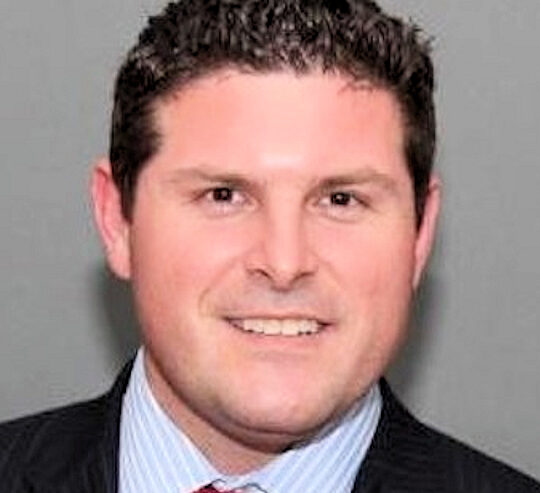
Aware of his slipping standing and despite Haiti’s grave financial crisis, Jovenel Moïse this month hired for a year at $96,000 the Washington-based public relations firm, the Latin America Advisory Group (LAAG), one of whose partners is Damian Merlo. Once a senior program officer at the National Endowment for Democracy’s International Republican Institute (IRI), Merlo helped the electoral consultants Ostos & Sola engineer the 2011 election victory of Moïse’s mentor and Haitian Bald Headed Party (PHTK) founder Michel “Sweet Micky” Martelly (who tested positive for Covid-19 this week) and was subsequently hired as a special assistant and “Ambassador-at-Large” to Martelly and his prime minister, Laurent Lamothe.
Despite a recent uptick, Covid-19 has so far largely spared Haiti, at least compared to the neighboring Dominican Republic, which has had from the coronavirus 168,265 cases and 2,405 deaths versus Haiti’s 9,999 and 236 respectively (12/29/20).
A looming post-pandemic world economic crisis and a wave of kidnappings gripping Haiti for over two months may also contribute to favorable conditions for the resumption of the revolutionary upheaval that was setback in 2020.
The following is a brief review of significant events in Haiti and its diaspora from the past year.

Jan. 6, 2020: Organization of American States (OAS) Secretary General Luis Almagro travels to Port-au-Prince to underline the Washington-controlled body’s support for embattled President Jovenel Moïse and his PHTK.
Jan. 12, 2020: The 10th anniversary of the devastating 2010 earthquake that struck the Port-au-Prince region is commemorated, with Haitians universally noting the corruption, incompetence, and misguidance in the spending of the $13 billion in international relief aid which Haiti received.
Jan. 13, 2020: Haiti’s entire Parliament (except for 10 Senate seats) expires because President Moïse failed to organize elections. He begins ruling by decree.
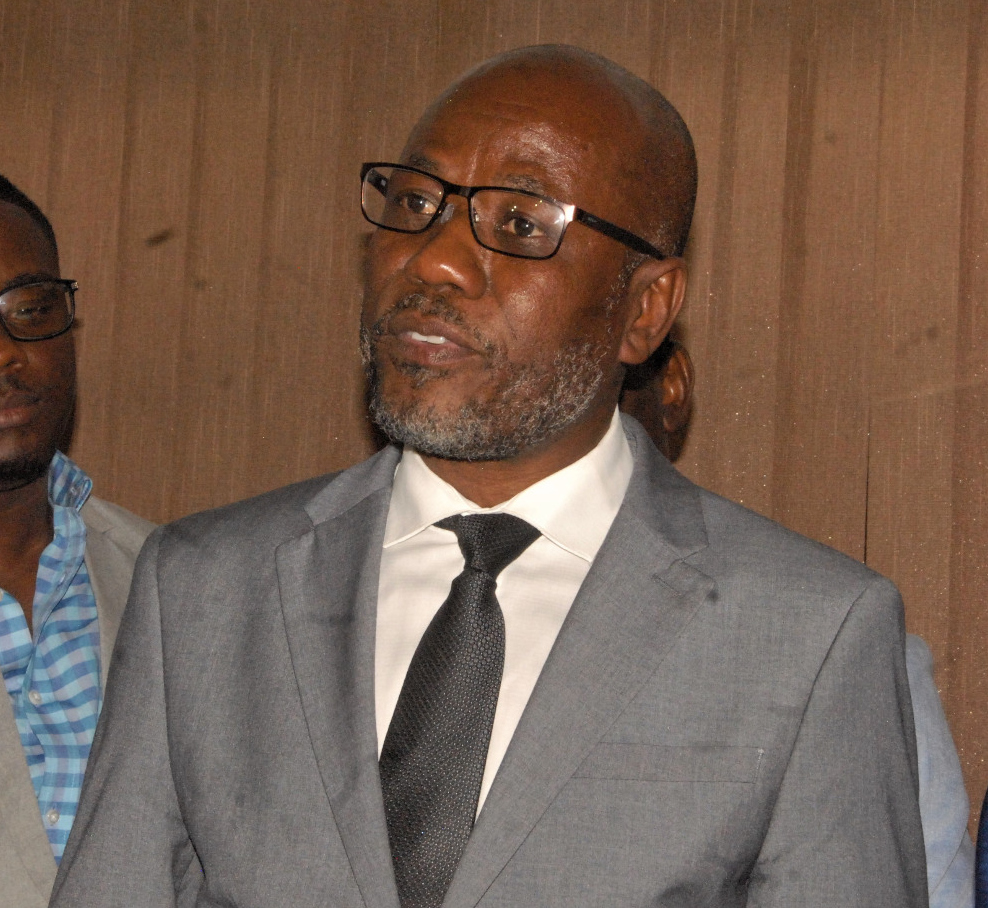
Jan. 22, 2020: President Moïse fires lawyer Claudy Gassant as head of the Unit for the Fight against Corruption (ULCC), apparently because he began poking into problems in Haiti’s Foreign and Justice Ministries.
Jan. 28, 2020: Haiti joins the Lima Group, a collection of 14 vassal states of Washington, formed to attack the Venezuelan government.
Jan. 31, 2020: A private jet with 11 Chinese passengers briefly lands in Port-au-Prince, causing anxiety in Haiti as fear about the emerging Covid-19 virus begins to spread internationally.
Feb. 17, 2020: Hundreds of rank-and-file Haitian police officers demonstrate in Port-au-Prince for a police union (SPNH) to improve their pay and working conditions, and for the release of five arrested union organizers. The same day, unknown arsonists set fire to the wooden Carnaval stands on the capital’s central Champ de Mars square.
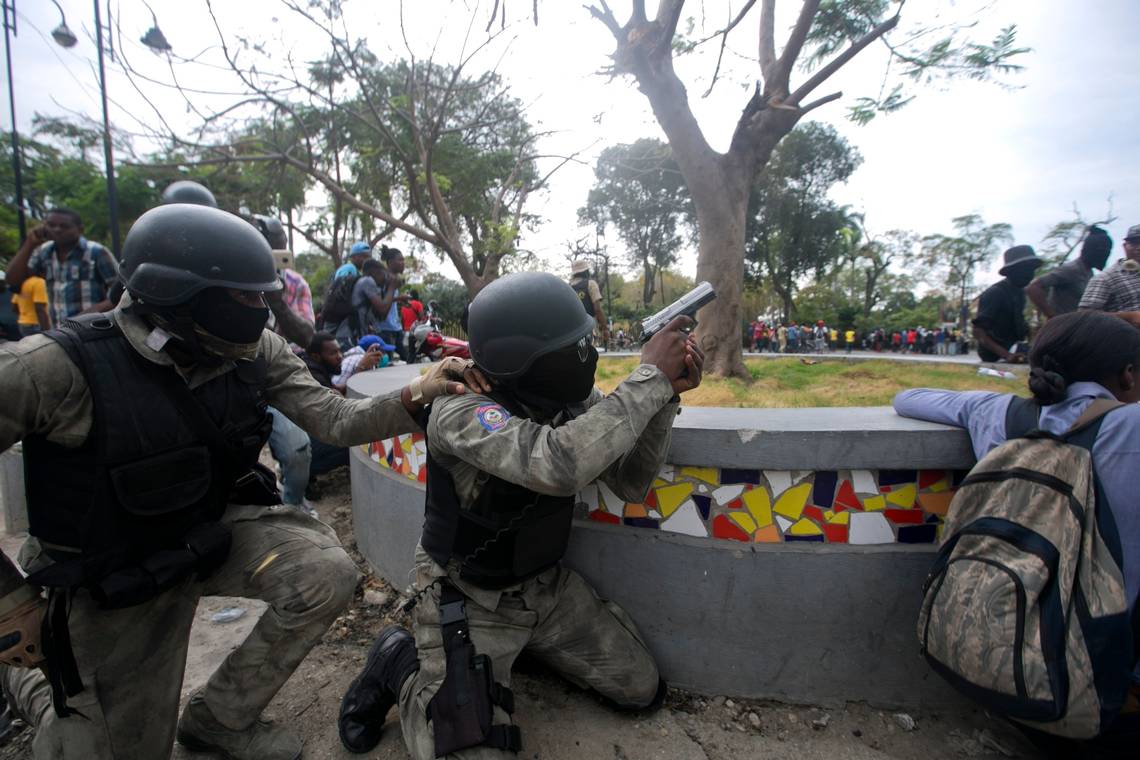
Feb. 23, 2020: Police and soldiers have a six-hour gun battle on the Champ de Mars, in which three are killed. The annual three-day Carnaval, which was to begin that day, in Port-au-Prince is cancelled, although it is partially held in Cap Haïtien.
Mar. 2, 2020: President Jovenel Moïse names Joseph Jouthe Prime Minister, replacing Jean-Michel Lapin.
Mar. 16, 2020: As Covid-19 surges worldwide, Haiti closes its border with the Dominican Republic and stops most international flights.
Mar. 19, 2020: The Public Health Ministry confirms two cases of Covid-19, marking the official start of the coronavirus’ spread in Haiti.
Mar. 30, 2020: Six heavily armed gunmen attack the home of Edouard “Pacha” Vorbe, a leader of the Lavalas Family party, in the Port-au-Prince suburb of Laboule. The assailants terrorize the house guardians and servants, kill the guard dogs, and vow to come back for Vorbe, who wasn’t home at the time.
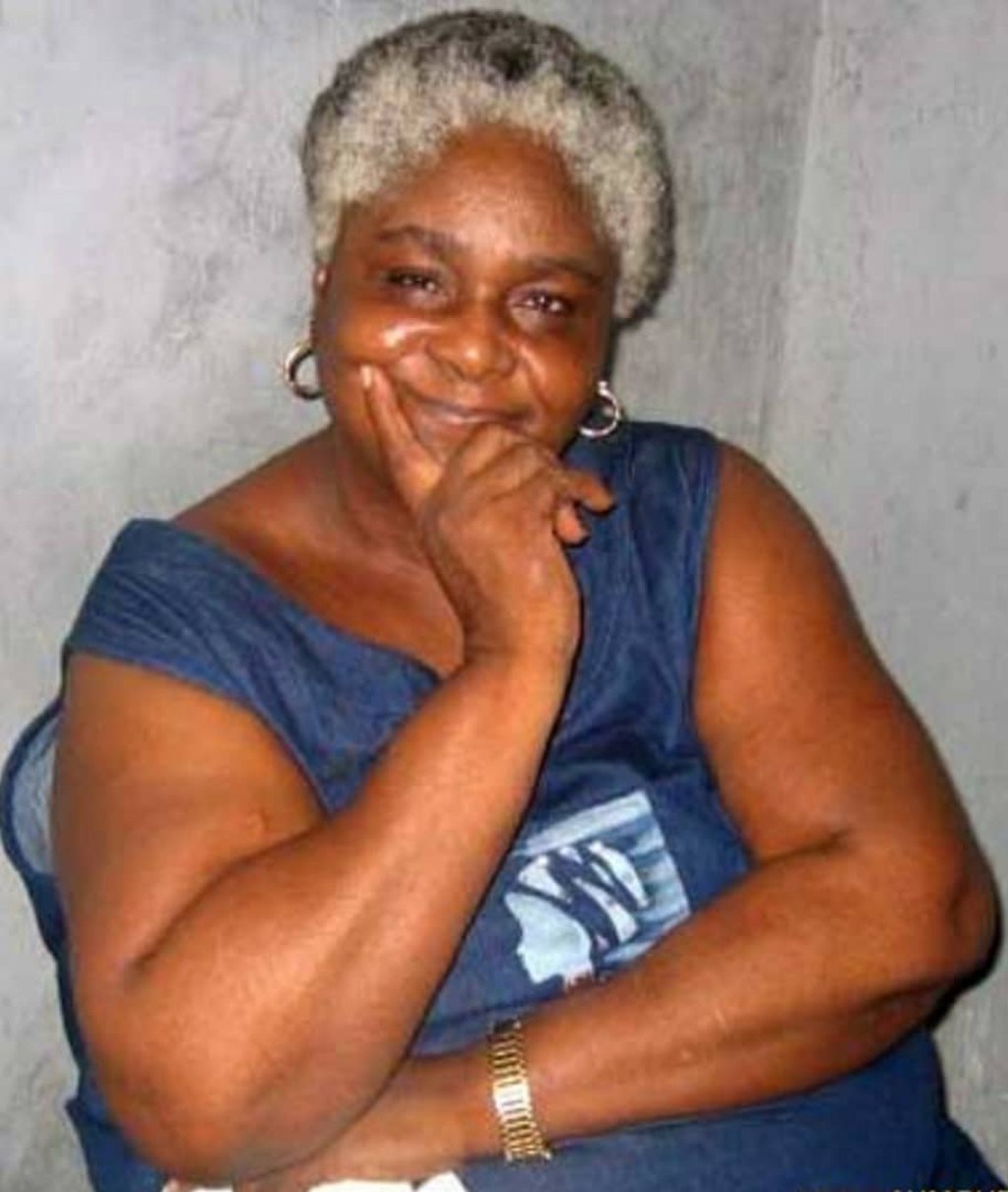
Apr. 17, 2020: Former political prisoner and longtime Lavalas Family activist turned PHTK candidate Annette “Sò An” Auguste dies of breast cancer in Port-au-Prince.
Apr. 27, 2020: Police officers from a shadowy group called “Phantom 509” hold a dramatic demonstration in the capital to demand better salaries and working conditions. The protestors set fire to some government vehicles.
Apr. 30, 2020: Philip Alston, the United Nations’ Special Rapporteur on extreme poverty and human rights, along with 13 other UN rapporteurs issue a letter to UN Secretary General Antonio Guterres condemning the body for making false promises to Haiti regarding compensation for the cholera epidemic, which the UN imported into Haiti in October 2010.
May 1, 2020: The Coalition of Political, Union, and Popular Organizations and Haitian proletarians march through the capital to demand a 1500 gourde ($15.30) per day minimum wage and other demands on International Workers Day.
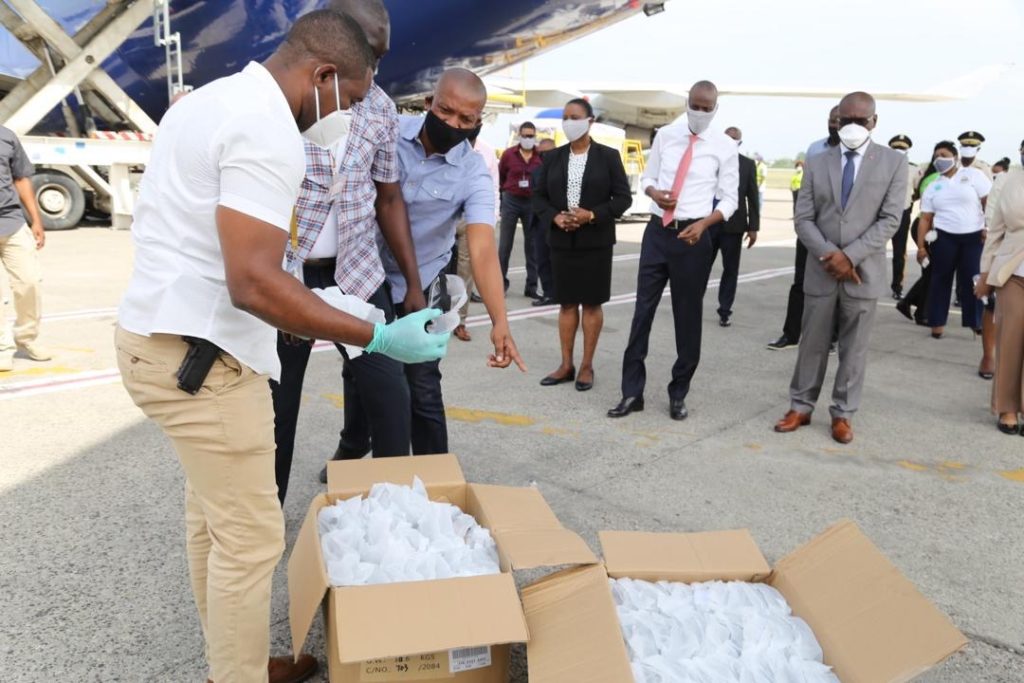
May 7, 2020: President Moïse, PM Jouthe, and other Haitian officials assemble at the capital’s airport to receive the first shipment of $18.6 million worth of medical equipment Haiti purchased from China to combat Covid-19.
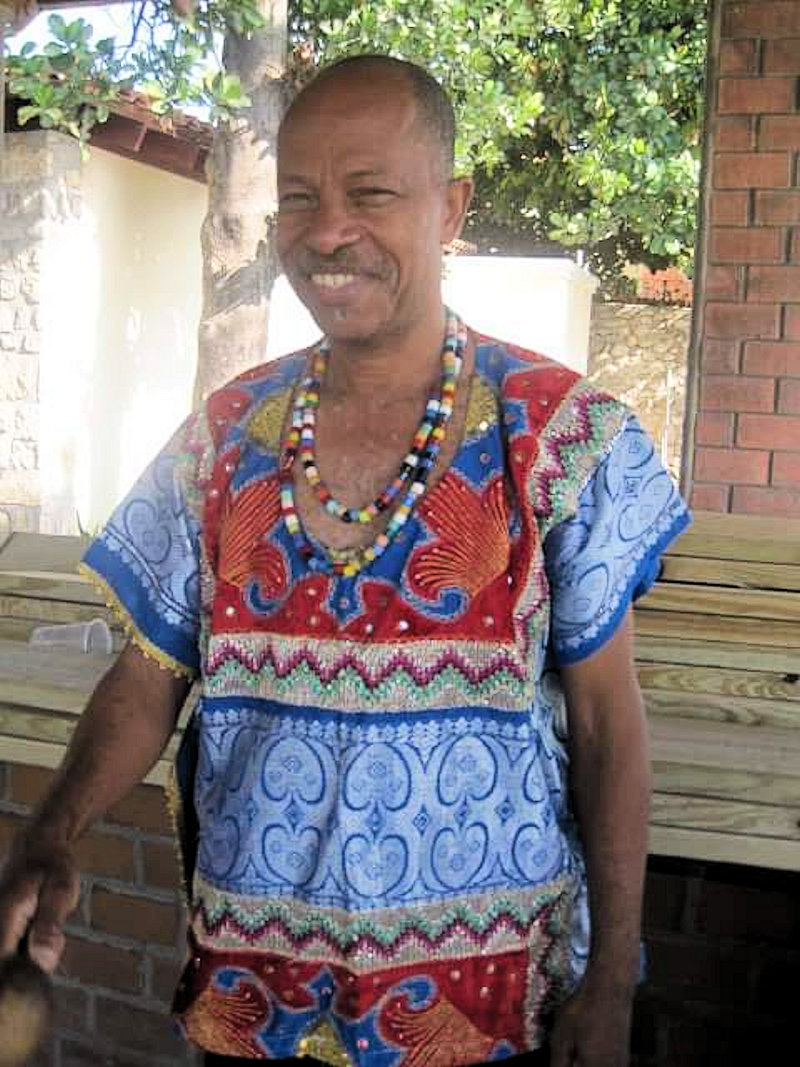
May 8, 2020: After two years of sickness, well-known rasin musician Wilfrid “Ti Do” Lavaud dies three weeks after his longtime companion Annette Auguste in a Port-au-Prince hospital.
May 17, 2020: After fiercely opposing it for months, the Haitian National Police (PNH) formally recognizes the Union of the Haitian National Police (SPNH) and its 17-member leadership in a ceremony at the capital’s Vincent Gymnasium.
May 26, 2020: U.S. Immigration and Customs Enforcement (ICE) deports at least eight Haitians who had tested positive for Covid-19 among a group of 30 returned to Haiti. It was one of many ICE flights since February which deported coronavirus-infected Haitians back to their homeland.
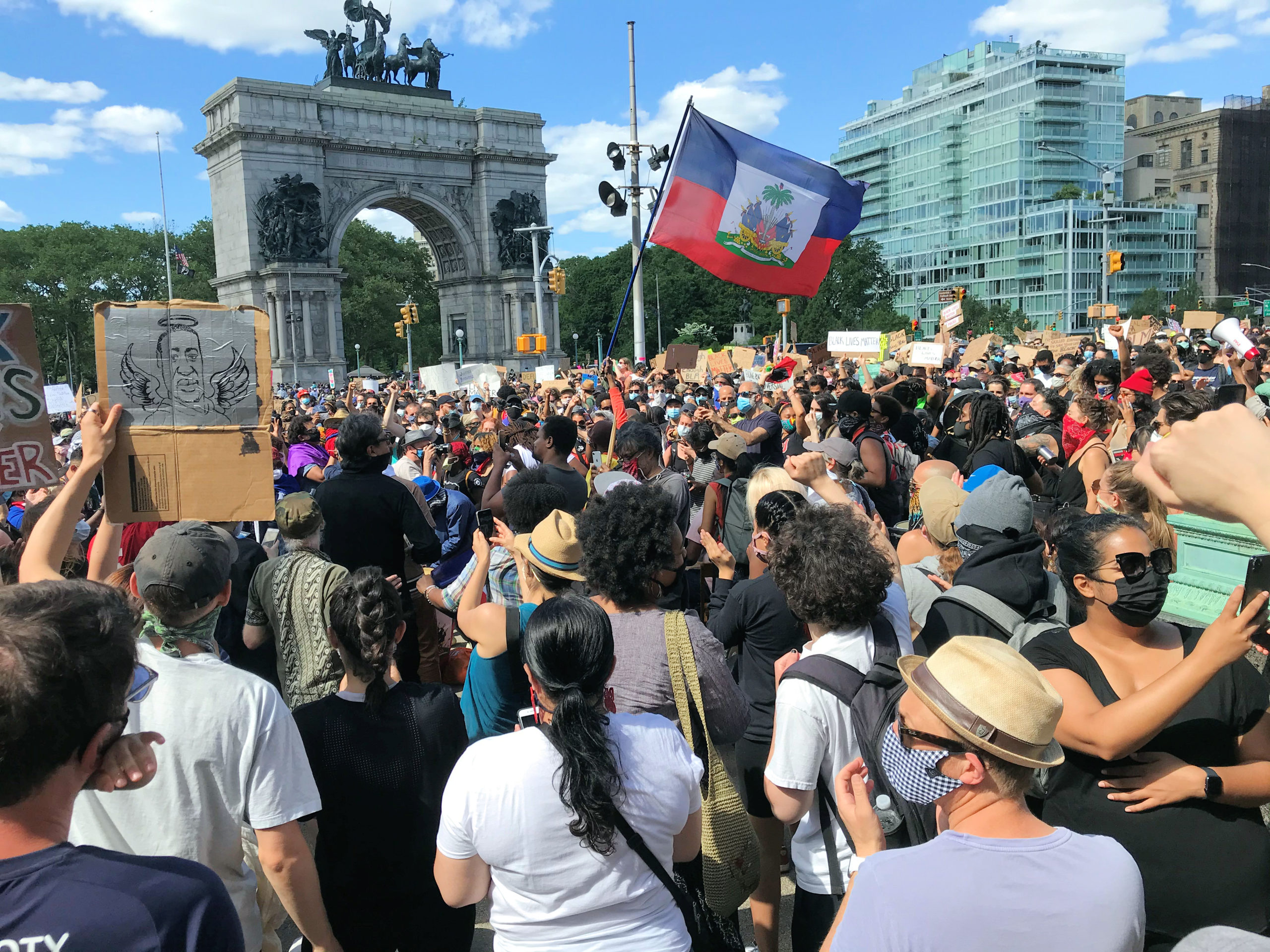
Jun. 7, 2020: Following the May 25 police murder of George Floyd in Minneapolis, Haitian drummers call and lead a demonstration of thousands in Brooklyn, NY.
Jun. 23, 2020: After 26 years in the U.S. (14 of them behind bars), former FRAPH death-squad leader Emmanuel “Toto” Constant is deported back to Haiti.
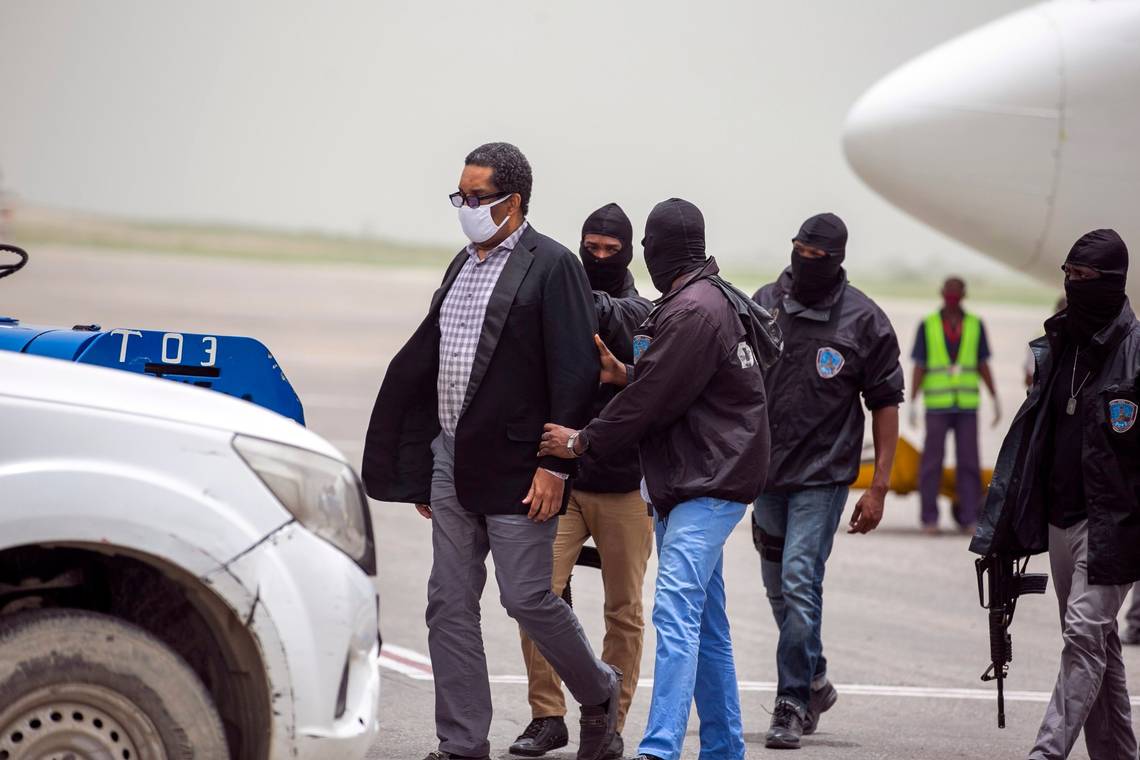
Jun. 29 & Jul. 6, 2020: Nou pap dòmi (We’re not sleeping), Nou konsyan (We’re conscious), and several popular organizations demonstrated in front of the Justice Ministry on consecutive Mondays to protest the wave of killings and kidnappings sweeping Haiti during the previous month. Police disperse the demonstrators with tear-gas.
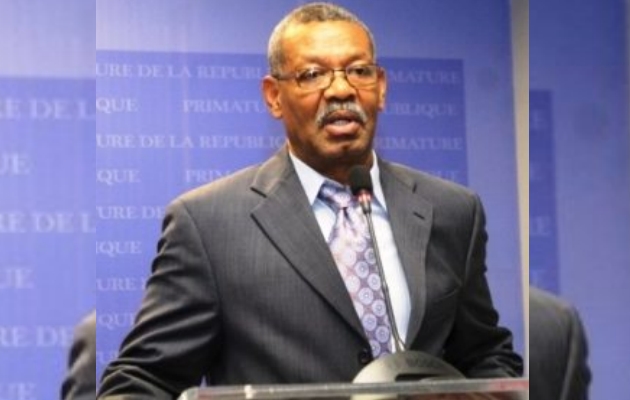
Jul. 6, 2020: By presidential decree, Jovenel Moïse appoints Michel Présumé as the director of Electricity of Haiti (EDH), the state power authority. The union of EDH workers strongly protest, pointing out that Présumé was the architect of the privatization of other state enterprises under President René Préval.
Jul. 7, 2020: Armed neighborhood groups, sometimes called “gangs,” from Cité Soleil, Delmas 2, la Saline, Wharf de Jérémie, Grand Ravine, Village de Dieu, and other Port-au-Prince shantytowns march through Port-au-Prince accompanied and cheered on by people from their neighborhoods. They had recently formed an alliance called the “G9 Friends and Families,” vowing not to fight among each other, not to work for the government, opposition, or bourgeoisie, and to devote themselves solely to the betterment and security of their communities.
Jul. 22, 2020: In a speech in Cap Haïtien, Jovenel Moïse declares: ““I don’t see how there is anyone, after God, who has more power than me in the country. I am the president.”
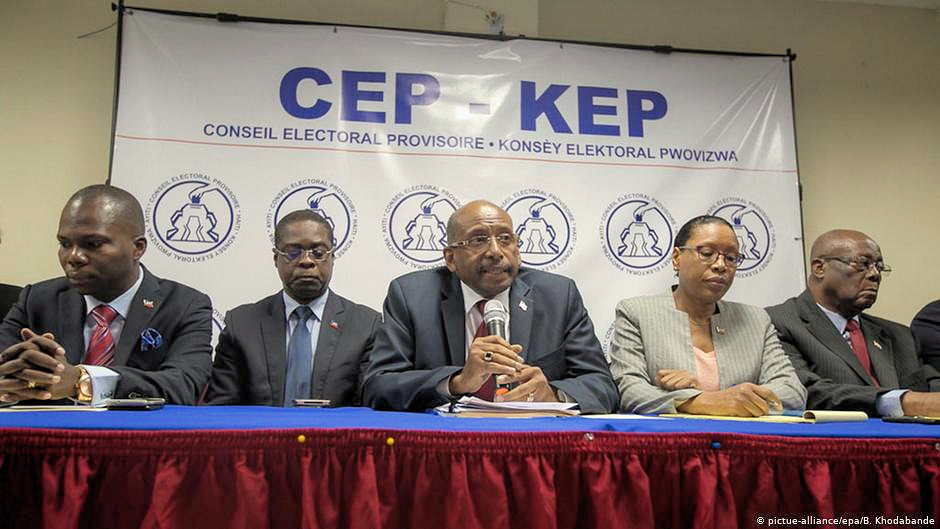
Jul. 27, 2020: Haiti’s entire Provisional Electoral Council (CEP) resigns after President Moïse sent a letter to the nine civil society sectors that nominate members for the electoral body, asking for them to confirm or replace their CEP representatives in only four days.
Jul. 31, 2020: The mayors in 140 of Haiti’s 146 communes (counties) have their mandates expire without any elections being held for replacements. President Moïse attempted to name “interim executive agents” to fill the void, but the citizens of many towns around Haiti held demonstrations demanding that the regime’s representatives not be recognized.
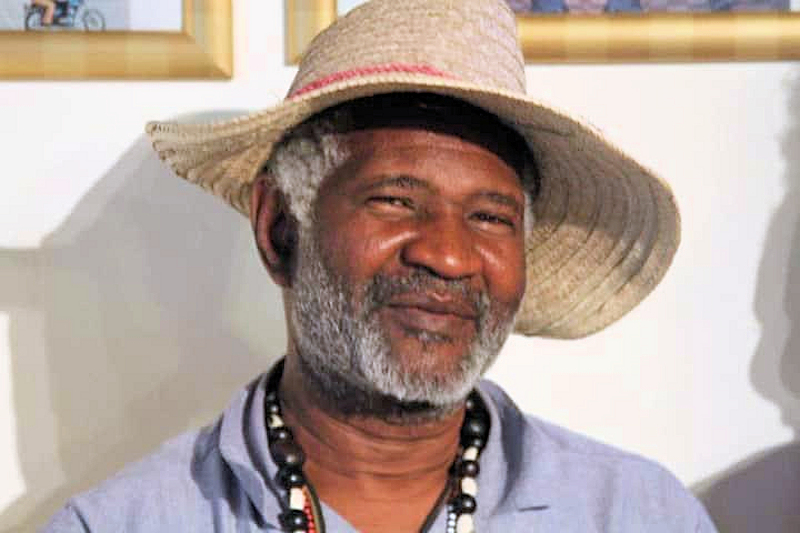
Jul. 31, 2020: Renowned radio journalist Anthony “Konpè Filo” Pascal dies in Port-au-Prince of natural causes.
Aug. 4, 2020: Seeking money, Haiti’s Foreign Minister Claude Joseph begins a five day visit to Washington to meet with the U.S. State Department’s Michael Kozak, OAS chief Luis Almagro, and officials of the Lima Group and TIAR, two pro-Washington federations aimed at overthrowing Venezuela’s elected government.
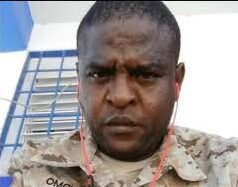
Aug. 15, 2020: The United Nations Integrated Office in Haiti (BINUH) calls on the Haitian government to arrest “gang leaders,” specifically Jimmy “Barbecue” Chérizier, the leader of the “G9 Friends and Family” coalition of neighborhood committees.
Aug. 16, 2020: President Moïse runs into U.S. Secretary of State Mike Pompeo at the inauguration of Dominican president Luis Abinader and then falsely implies via Twitter that it was a formal diplomatic meeting, creating a storm of outrage on social media.
Aug. 17, 2020: Haiti’s Superior Court of Accounts and Administrative Litigation (CSCCA) issues its third and final report on the embezzlement and squandering of $1.74 billion in funds from the PetroCaribe Fund, established through the sale of cheap Venezuelan oil from 2008 to 2018.
Aug. 20, 2020: A collection of opposition parties, business associations, and civil society groups and individuals form a new opposition front named the Assembly for the Dignity of Haiti (RADI).
Aug. 22-23, 2020: Tropical Storm Laura slams Haiti’s southern peninsula, killing at least 31 and destroying thousands of homes and farms.
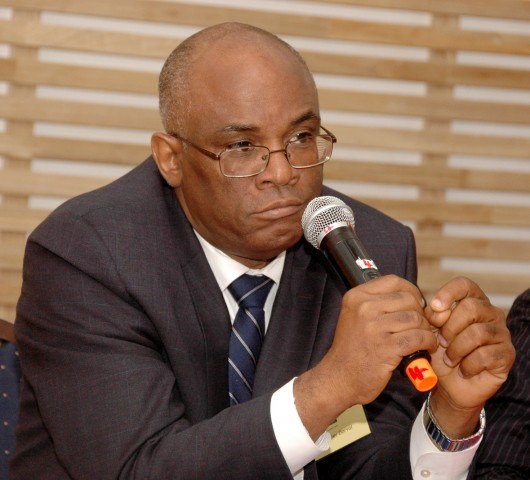
Aug. 28, 2020: Still unknown gunmen assassinate lawyer Monferrier Dorval, the president of Haiti’s Bar Association, at his home in Pèlerin 5, a Port-au-Prince suburb.
Aug. 30, 2020: Jack Lieberman, 70, a longtime South Florida solidarity activist for Haitian democracy and refugees, dies from Covid-19 in Miami.
Sep. 12, 2020: Masked policemen from the pressure group Phantom 509, backed by students and popular organization militants, march through the capital calling for the release of five arrested policemen, a demand to which the government quickly acquiesces. Barricades of tires and several vehicles are set ablaze. A second Phantom 509 protest is held on Sep. 14 to demand the release of a sixth arrested policeman.
Sep. 22, 2020: President Jovenel Moïse announces a new hand-picked nine-member Provisional Electoral Council, which is denounced by Haiti’s opposition.
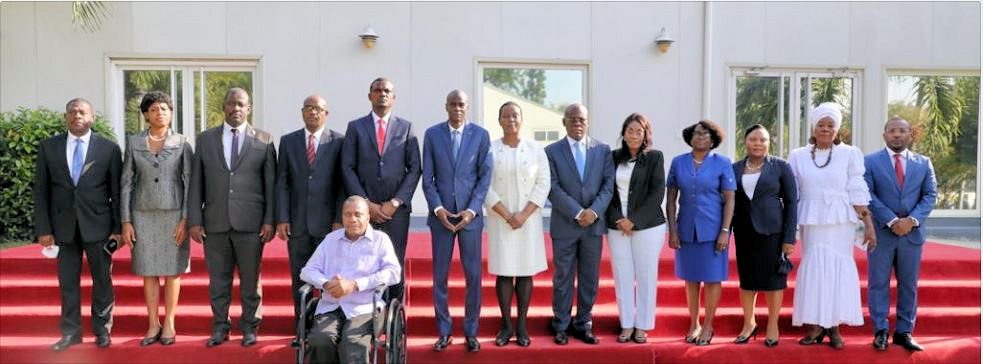
Sep. 29, 2020: Former Sen. Kelly C. Bastien resigns from the leading opposition front, the Democratic and Popular Sector (SDP), after revealing that he had been its liaison in secret negotiations with President Jovenel Moïse, an assertion the SDP’s leadership denied.
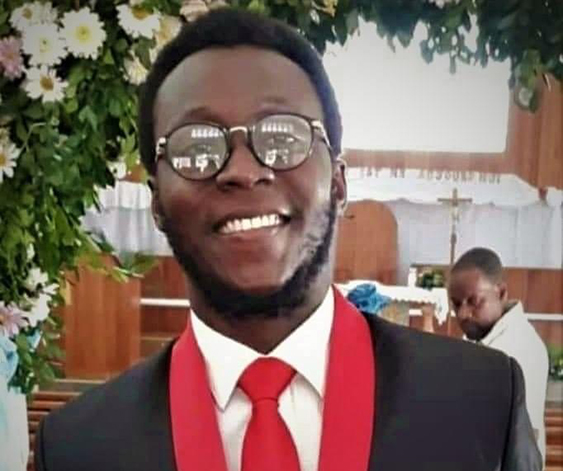
Oct. 2, 2020: One or more policemen of Haiti’s Presidential Guard fatally shoot in the back Gregory “Greg” Saint-Hilaire, 29, who was protesting the Education Ministry’s false promises of jobs. His killing sets off fierce protests.
Oct. 5, 2020: Hundreds of lawyers, judges, and students march through Port-au-Prince to demand justice for the killing of Bar President Monferrier Dorval and student Grégory Saint-Hilaire.
Oct. 15, 2020: In a ceremony at Port-au-Prince’s Plaza Hotel, Haiti’s opposition rolls out yet another coalition, this one called the Political Direction of the Democratic Opposition (DIRPOD), with a composition very similar to that of the SDP.
Oct. 17, 2020: Thousands march in two opposition protests, one led by André Michel’s DIRPOD and SDP in Port-au-Prince and the other by former Sen. Moïse Jean-Charles’ Dessalines Children party in Cap Haïtien, on the 214th anniversary of the assassination of Jean-Jacques Dessalines, Haiti’s preeminent founding father. Haitian police disperse the Port-au-Prince march with teargas. Meanwhile, President Moïse for the second year is forced to recognize the date in a small ceremony near the National Palace rather than in the capital’s Pont Rouge neighborhood, where a memorial marks the site of Dessalines’ assassination.
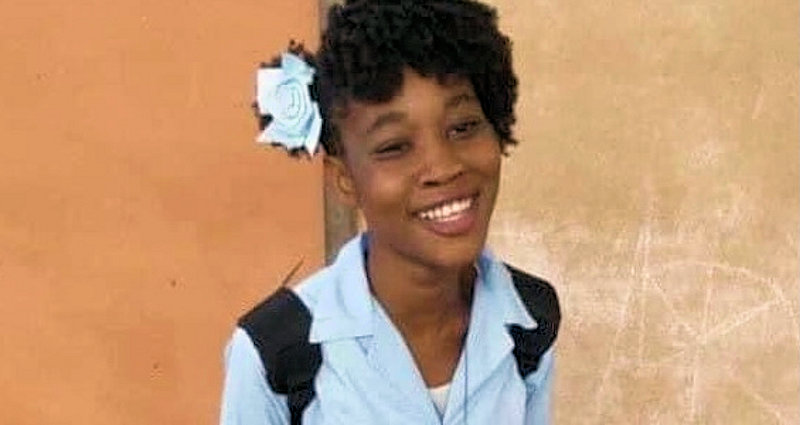
Nov. 1, 2020: The body of Évelyne Sincère, a 22-year-old student, was found on a garbage heap in Delmas 24 after she was kidnapped on Oct. 29. The brutal murder sparks universal outrage and a march by her schoolmates from the Jacques Roumain High School on Nov. 4 and 5. On Nov. 9, the police round-up her killers – Evald Domerçant, 27, Michel Jerry Domerçant, 22, and Obed Joseph, 24. The latter, her boyfriend, was tracked down and delivered to the police by Jimmy Chérizier, the indicted G9 leader. All three men confess to the horrific crime.
Nov. 6, 2020: By decree, President Moïse illegally curtails the oversight powers of Haiti’s CSCCA, which had been at odds with him for years since publishing reports outlining his involvement in corruption surrounding the PetroCaribe Fund.
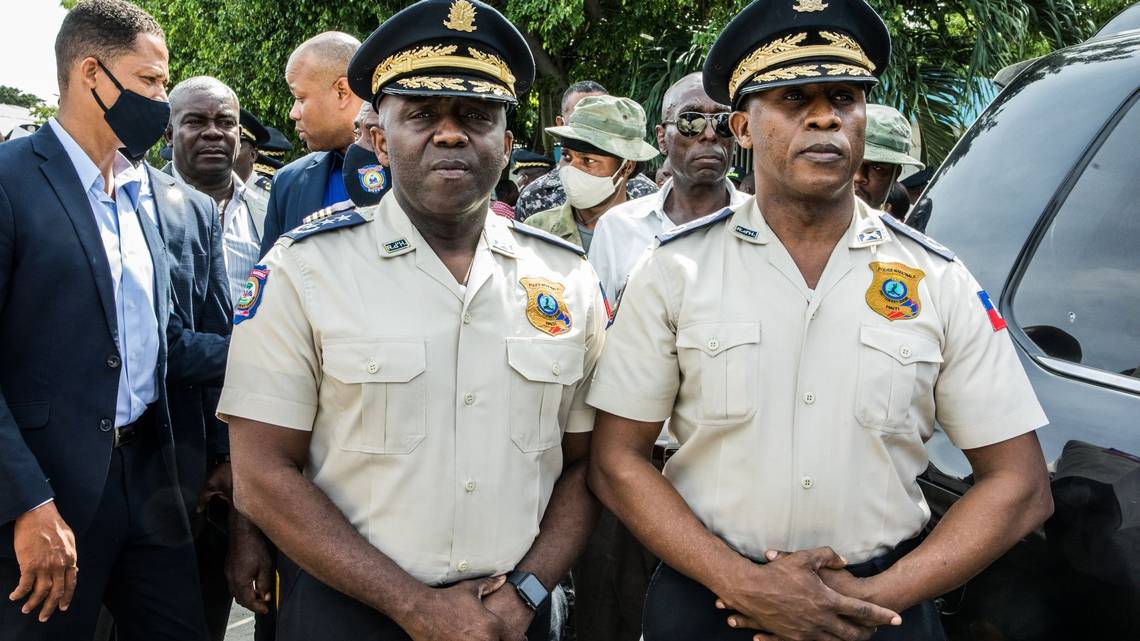
Nov. 16, 2020: Former police chief Léon Charles is recalled from Washington to replace as head of Haiti’s National Police (PNH) Normil Rameau, who lasted only 15 months on the job. During his PNH stewardship in 2004 and 2005, Charles was infamous for his repression and spying.
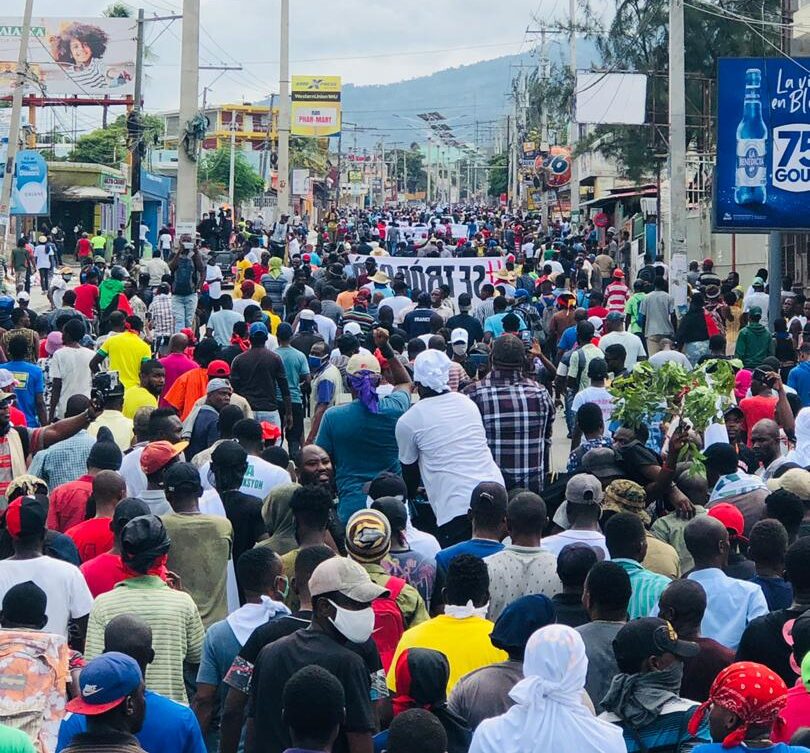
Nov. 18, 2020: Thousands of protestors march to demand the departure of President Jovenel Moïse on the 217th anniversary of the decisive battle of Haiti’s independence war at Vertières. One demonstration, led by Moïse Jean-Charles’ Dessalines Children, marched on the U.S. Embassy in Tabarre, while the other led by André Michel’s SDP, marched through Delmas towards the National Palace but was dispersed by police.
Nov. 20, 2020: Phantom 509 again demonstrates in Port-au-Prince to demand better salaries and working conditions for the police. The protesting cops burn some government vehicles.
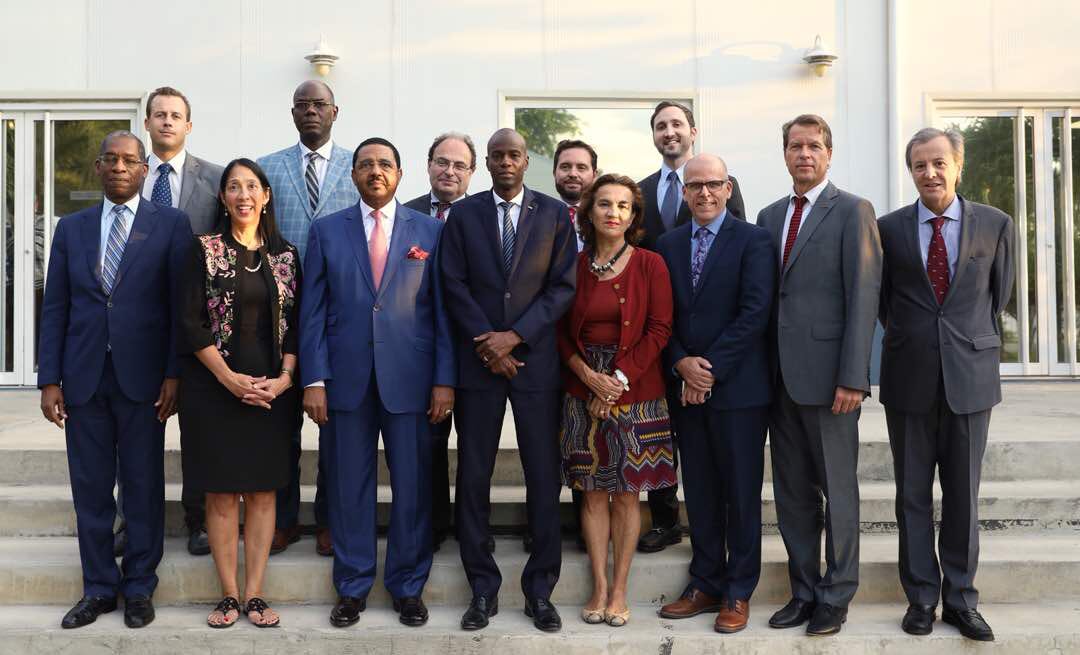
Nov. 25, 2020: The “Core Group,” a collection of ambassadors who follow Washington’s lead in Haiti, support Jovenel Moïse’s “expediting preparations for elections,” directly contradicting the opposition’s demand that Jovenel step down no later than Feb. 7, 2021.
Nov. 26, 2020: Jovenel Moïse issues two illegal decrees forming a new Gestapo-like force, the National Intelligence Agency (ANI) and classifying common forms of protest as “terrorism” punishable by exorbitant fines and 50 years in prison.
Nov. 30, 2020: The Haitian opposition unveils its proposal for replacing Jovenel Moïse: a Supreme Court justice would head a transitional government that will hold elections.
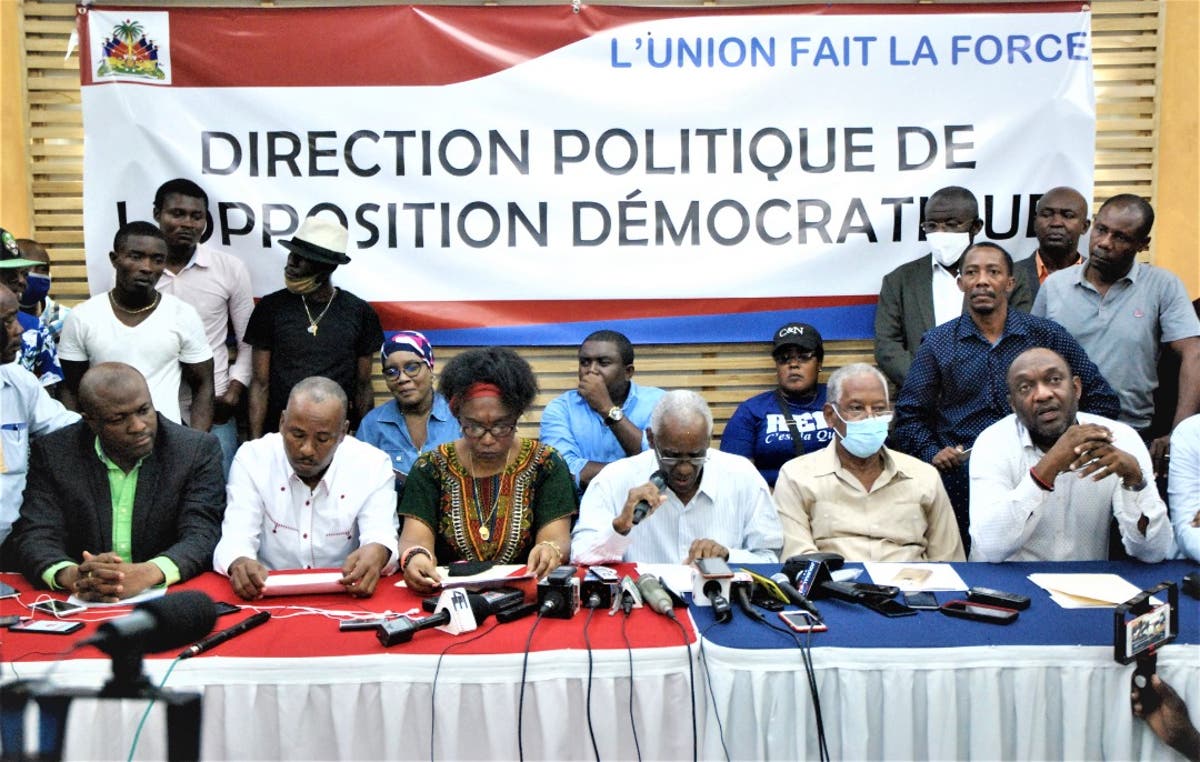 Dec. 4, 2020: Haitian police unsuccessfully attempt to retake control of the Port-au-Prince shantytown Village de Dieu, followed by a second incursion on Dec. 12.
Dec. 4, 2020: Haitian police unsuccessfully attempt to retake control of the Port-au-Prince shantytown Village de Dieu, followed by a second incursion on Dec. 12.
The same day, Gérard Gourgue, 95, a member of the first post-Duvalier junta, the leading presidential candidate in Haiti’s aborted November 1987 elections, and the unelected president of a “parallel” government to Jean-Bertrand Aristide’s in 2001, dies.
Dec. 12, 2020: Seeming to switch from unconditional support of Jovenel, the “Core Group” issues another statement warning that ANI agents would enjoy “virtual legal immunity, thus opening up the possibility of abuse.” They add that the Nov. 26 presidential decrees appear to violate “certain fundamental principles of democracy, the rule of law, and the civil and political rights of citizens.”
Dec. 14, 2020: Jovenel Moïse’s regime opens a Haitian consulate in Dakhla, Western Sahara, thereby recognizing Morocco’s illegal claim over “Africa’s last colony.” By establishing a consulate where there are likely no Haitians, Jovenel does the bidding of Washington and Israel, Moroccan King Mohamed VI’s allies.
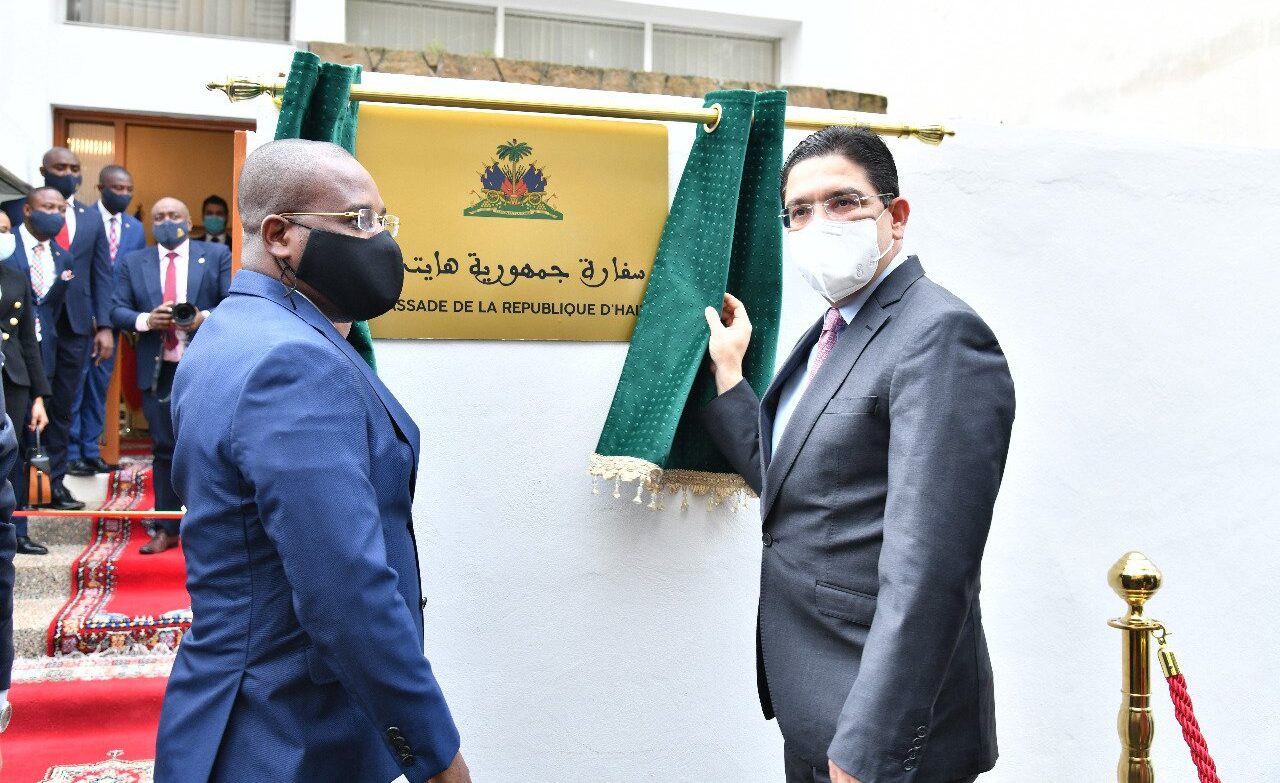
Dec. 21, 2020: About 40 agents of the Brigade for Security of Protected Areas (BSAP) allegedly ambush eight agents of the Unit for the General Security of the National Palace (USGPN) who were transporting a large sum of money from the capital to workers on a hydroelectric dam in the Central Plateau. The assailants took the money and the USGPN’s guns. The incident underlines the disarray growing among Haiti’s armed forces.










